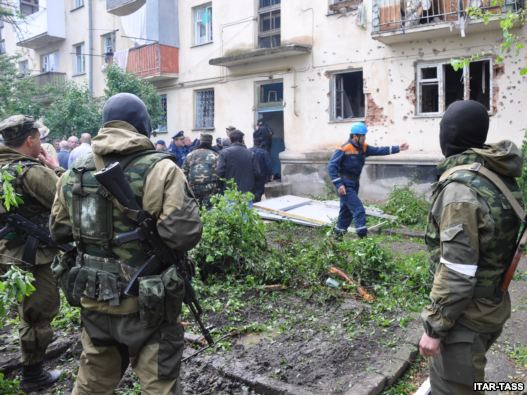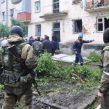
Kremlin Proves Unable to Stabilize Security Situation in Kabardino-Balkaria
Publication: Eurasia Daily Monitor Volume: 8 Issue: 212
By:

On November 14, the Federal Security Service (FSB) introduced a counterterrorism operation regime in the forested mountainous parts of Kabardino-Balkaria’s Chegem and Baksan districts and in parts of the town of Baksan. However, the following events cast doubt on the regime’s usefulness. The regime was introduced in the town of Baksan on November 14 at 7:30 a.m. but was lifted three and half hours later – at 11:00 a.m. In the mountainous areas of Chegem and Baksan districts, the regime was introduced at 1:00 p.m. on November 14 and lifted at 1:00 p.m., on November 15. No particular results of the special regime were reported. Yet at 1:30 p.m., on November 14, as the regime came into effect in Chegem and Baksan, unidentified attackers gunned down two policemen in Nalchik, the capital of Kabardino-Balkaria. One of the policemen died on the spot while the other died later in the hospital (www.kavkaz-uzel.ru, November 14).
On November 13, an assailant attacked a road police officer in the Elbrus district town of Tyrnyauz, but was himself killed by the policeman (www.kavkaz-uzel.ru, November 13). On November 11, an unidentified assailant killed a businessman in the Chegem district of Yanikoi (www.kavkaz-uzel.ru, November 12).
The counterterrorism operation regime has apparently turned into a useful tool for the security services to show off how active they are. However, by using this special regime so often, the authorities risk degrading its special character and also show how unstable the situation in Kabardino-Balkaria remains. The counterterrorism operation regime has become nearly the last vestige of government authority in the republic, since other, more routine methods do not work.
On November 5, the counterterrorism operation regime was finally lifted in Elbrus and Baksan districts. Parts of the republic had been under a special security regime for eight months since the killing of the tourists from Moscow in February 2011. Officials hailed the results of the counterterrorism operation which, according to their estimates, inflicted serious casualties on the rebels and “stabilized the crime situation” in the republic (www.kavkaz-uzel.ru, November 5).
The latest events, however, undermine the authorities’ optimism about turning back the wave of insurgency in Kabardino-Balkaria. The militants are showing increased signs of having recovered from the profound loss of all of their leaders in a Russian security services attack in April 2011. Since the rebels staged their latest series of attacks in the winter, when they cannot hide in the mountains easily, these brazen attacks probably show that they have considerable support from the local population in towns that can provide shelter and food for them.
On November 14, the Kabardino-Balkarian insurgency’s new website published a video address by an Emir Abdul Malik. The young man with an uncovered face called on Muslims to provide assistance to the insurgents in Kabardino-Balkaria, while also threatening the Russian security services (https://www.djamaattakbir.com/2011/11/blog-post_862.html).
In the meantime, members of Kabardino-Balkaria’s ethnic Russian population are increasingly vocal about their rights, as other members of the republic’s ethnic Russian community gradually leave the republic. According to ethnic Russian activists, ethnic Russians comprised 40 percent of the republican population in 1990 and currently make up less than 20 percent. Activists also complain that in the Russian populated Maisky and Prokhladnensky districts of Kabardino-Balkaria, an increasing number of Kabardins are taking over enterprises and government offices (https://skfonews.info/article/152). According to official data, the proportion of ethnic Russians in Kabardino-Balkaria decreased from 32 percent in 1989 to 25 percent in the 2002 census. However, the numerical decrease of the Russian population in the same period was only 14,000 people. It is because of the rapid growth of the native North Caucasian population that the proportion of ethnic Russians decreased so drastically (www.valerytishkov.ru, accessed on November 15).
The outflow of ethnic Russians from Kabardino-Balkaria may have accelerated in the past several years, as the republic quickly became one of the hottest spots in the North Caucasus. The final results of the 2010 Russian census are expected in the summer 2012.
In October Kabardino-Balkaria’s republican parliament rejected an amendment to the Russian constitution proposed by the Liberal Democratic Party of Russia, the Russian nationalist party of Vladimir Zhirinovsky. The amendment would alter the preamble of the Russian constitution, citing ethnic Russians as the founders of the state instead of the current “peoples of Russia” (https://www.gazetayuga.ru/archive/number/obs.htm). While it would be just a symbolic declaration with little immediate impact on everyday life, formally elevating one ethnicity over others was harshly criticized in Kabardino-Balkaria’s parliament, but was hailed by some Russian nationalists.
On November 11, Georgian-Circassian relations made a major step forward when Georgia’s minister for diaspora affairs, Mirza Davitaya, met a group of Circassian activists in Istanbul, Turkey. Davitaya informed the Circassians about Georgia’s moves to accommodate Circassian interests – in particular, regarding the Circassian genocide issue (https://www.elot.ru/main/index.php?option=com_content&task=view&id=2620&Itemid=1). As the 2014 Olympics in Sochi approaches, Georgia and the Circassians are trying to increase joint efforts to attract the attention of the international community to Russian policies in the Caucasus. So far there have been no indications of cooperation of any sort between the Circassian activists and the insurgency in Kabardino-Balkaria. However, as the government continues its struggle against the insurgents and largely disregards Circassian aspirations, it may eventually lose support from both constituencies, which will further undermine Moscow’s position in the North Caucasus.




